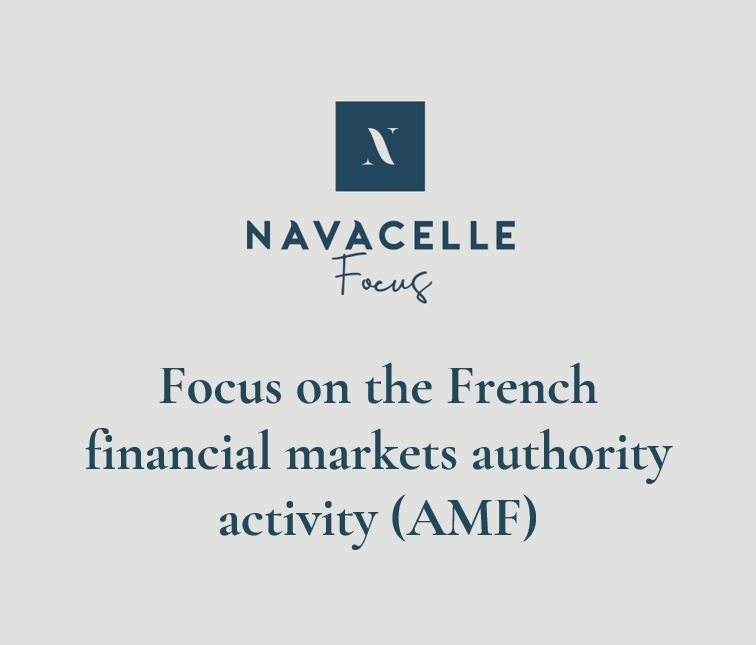Article 22 of the law which came into force on the 9th December 2016 regarding transparency, the fight against corruption and the modernization of economic life – otherwise known as “Sapin 2” – has confirmed the introduction of a deferred prosecution agreement into French criminal law.
The public interest judicial convention (CJIP) comes after the convention concerning public interest compensation which was criticized by the French Council of State (Conseil d’État) as not enabling the criminal justice system to ensure fully its mission, namely to restore public peace and to prevent repeat offenders.
The introduction of this mechanism illustrates the legislator’s desire to respond to criticisms of the OCDE, amongst which was the absence of sanctions towards businesses for corruption in France, and respond to the harsh fines imposed upon French businesses in the United States.
The CJIP can be proposed to a legal entity being questioned over a breach of probity (corruption, influence peddling, money laundering, laundering of tax fraud proceeds and other related offences) by the public prosecutor, as long as no investigating magistrate in involved, in other words at the inquiry stage, or after transmission of the file by the investigating judge once, as part of judicial information, the legal entity being questioned acknowledges the facts and accepts the criminal qualification held.
The decree of April 27, 2017 regarding the CJIP and judicial obligations specifies that the proposed settlement agreement is addressed to the representatives of the legal entity by registered letter and includes a deadline by which the offer must be accepted.
Simultaneously, the public prosecutor will inform the victim, if identified, of his/her decision to propose the conclusion of a CJIP to the legal entity in question. The public prosecutor will then outline a period within which the victim can transmit to him/her any evidence establishing the reality and extent of his harm.
The convention proposed by the public prosecutor can impose one or more obligations upon the legal entity whose financial sanction is considered to be of public interest to the Treasury and the amount of which will be proportional to the advantages wrongly gained from the misconduct identified, but will be capped at 30% of the average sales revenue of the last three years, as well as the implementation of a compliance programme for a maximum duration of three years and compensatory damages once the victim is identified.
Once the convention is accepted by the legal entity, a validation request emanating from the public prosecutor, accompanied by the accepted CJIP and of the procedure will be transmitted to the President of the Tribunal de Grande Instance (TGI).
Both the entity’s legal representatives and the victim are notified of the request by registered letter with acknowledgement of receipt. They are also informed of the date, time and address of the hearing.
During the public hearing, the President of the TGI will conduct the hearing of both the legal entity and the victim(s) as well as counsel.
Following the hearing, a decision of validation or non-validation is notified to the representatives of the legal entity and the victim. The decision cannot be contested.
In the case of an ordinance of validation, the legal entity has a ten-day period to exercise his right to withdraw by sending a registered letter with receipt of acknowledgement to the public prosecutor. If the entity decides not to exercise its right to withdraw, the obligations laid out in the CJIP come into play.
The legal entity will then have to pay the public interest fine to the Public Finances General Directorate by sending a certified cheque within a year and it will have to put in place its compliance program under the supervision of the French Anti-corruption Agency (AFA), the recipient of the decision of validation and of the convention.
If the obligations are properly executed then the public prosecutor will notify the legal entity and the victim’s representatives that the public proceedings have ended. However, if these obligations are not properly carried out then the public prosecutor will declare the execution of the convention as being interrupted and will be free to resume the proceedings.
In this case, and in contrast to what happens if the summons procedure fails due to a predetermined guilty plea, the CJIP procedure is joined to the file for the procedure which the jurisdiction is handling so that the partial execution of the obligations imposed upon the legal entity, in the case of a conviction, can be taken into account.
In the same way as a US DPA mechanism and conversely to the summons procedure for a predetermined guilty plea, the CJIP doesn’t deliver a statement on the defendant’s culpability and is not of the same nature as a conviction judgment. The CJIP is, therefore, not registered on the criminal record of the legal entity.














